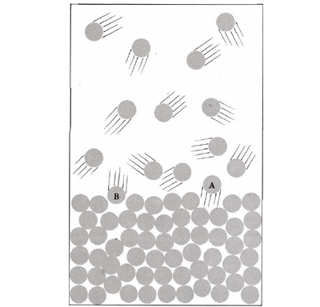In Vapor-Liquid Equilibrium, it is my understanding that molecules exchange between the gas and liquid continuously; even when no difference in temperature or partial pressure exists.
Regarding Solid-Liquid Equilibrium; is there a similar continuous exchange of molecules? For example on a single crystal of ice submerged in pure water at perfect and constant 0°C, will molecules on the surface of this crystal exchange with the liquid? In the past I have assumed this to be the case, but now realize I have not seen a reference that explicitly details this like is common for vapor-liquid equilibrium. Are there any references that calculate the rate at which this occurs? Side question, is there also a continuous exchange for solid-gas equilibrium?

